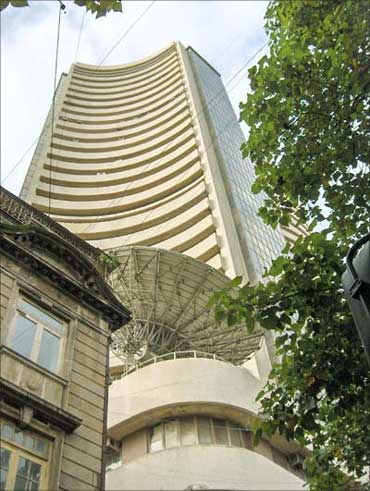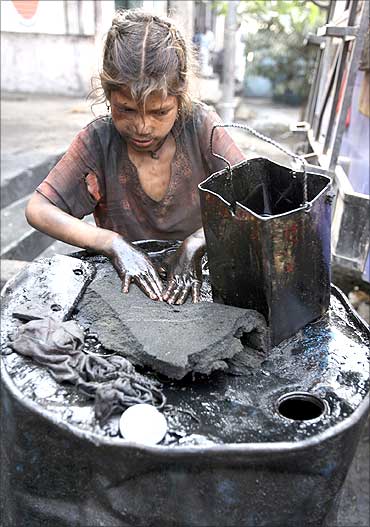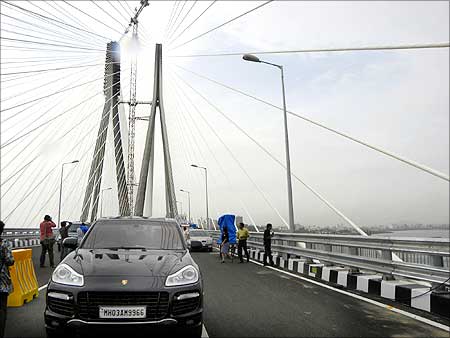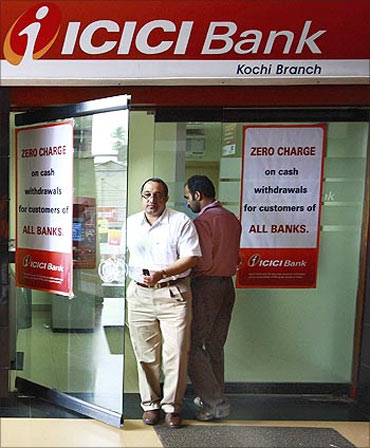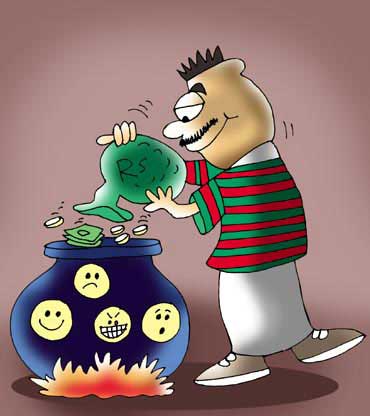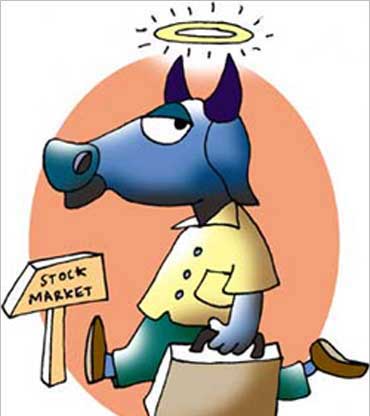 | « Back to article | Print this article |
Markets: Expect 10-12% returns in 2011
Premium valuations, global uncertainty and higher inflation will lead to moderate returns of 10-12 per cent in 2011 for the broader markets, say money managers.
Unlike the 80-plus per cent returns in 2009 and 17 per cent in 2010, investors will need, for the year ahead, to temper their expectations from the broader markets and focus more on mid-caps and small-caps, available at attractive valuations.
Expensive valuations and uncertainty could lead to significant volatility, with the Sensex likely to swing between 16,000 and 23,000.Click NEXT to read on
Markets: Expect 10-12% returns in 2011
Several factors, domestic and global, could lead to volatility. "Increasingly, global events will influence Indian equity markets.
The problematic euro zone economies, uncertainty over the US economic recovery and an expected slowing in the Chinese economy are the biggest worries," says Trideeb Pathak, senior director, equities, IDFC Mutual Fund. Experts cite North Korea as another flash point investors need to watch. Local concerns due to rising commodity prices, inflation and an expected rise in interest rates could lead to a jump in input cost and erode operating and net margins, especially of capital-intensive and interest rate-sensitive sectors.Click NEXT to read on
Markets: Expect 10-12% returns in 2011
Analysts say there is a high probability of earnings' downgrades. It could happen later next year, as the actual impact of inflation and interest rates starts kicking in.
The recent rise in crude oil and metal prices could also have a ripple effect on companies and consumers, leading to pressure on demand. Estimated earnings of the Sensex for 2011-12, now Rs 1,240-1,250 per share, could come down. And, valuations which look reasonable could turn expensive.Dilip Bhat, joint managing director of broking firm Prabhudas Lilladher believes measures taken to deal with the global (liquidity concerns due to Europe) and domestic issues (higher commodity prices) could easily clip off some points from India's economic growth and temper earnings growth, leaving these vulnerable to downgrades.
Click NEXT to read on
Markets: Expect 10-12% returns in 2011
The year was good for commodities, information technology, banking and auto, among other sectors. However, this year, money managers prefer some of the beaten-down sectors and those which exhibit good visibility.
Also, sectors that generally participate in the second leg of the economic recovery, such as those in the services space, including hotels and tourism, and mid-cap IT companies, could prove good bets.Infrastructure is another sector that analysts recommend, as most companies here are trading at 10-12 times next year's earnings, despite strong visibility. Also, analysts expect a pick-up in new orders due to the rush to achieve the targets set for the XI Five-Year Plan, ending March 2012.
Click NEXT to read on
Markets: Expect 10-12% returns in 2011
Click NEXT to read on
Markets: Expect 10-12% returns in 2011
Telecom is among the leading contenders, due to regulatory uncertainty and heightened competition.
Others such as real estate are in the list, given a rapid rise in real estate prices, interest rates and leveraged balance sheets. Fast moving consumer goods, which did well in the current rally, could deliver lower returns with the rises in input cost, and higher valuations, at 25 times the 2011-12 estimated earnings.Click NEXT to read on
Markets: Expect 10-12% returns in 2011
Analysts say a stock-specific approach will work in 2011, but investors should not simply chase returns at the cost of quality, which could be tested in the year 2011.
The memories of several scams, which broke in the year 2010, are still fresh. With investigations on, investors need to do more due diligence before investing.Click NEXT to read on
Markets: Expect 10-12% returns in 2011
"I would try to keep the price earnings ratio of the portfolio down to the extent possible," says Manish Sonthalia, vice president and fund manager, Motilal Oswal AMC.
Money managers such as Trideeb Pathak of IDFC add that it'd be better to stick with companies which do not require much capex immediately and ones not dependent on external borrowings, as interest costs and the impact of global events could skew the picture.
With inputs from Ram Prasad Sahu
